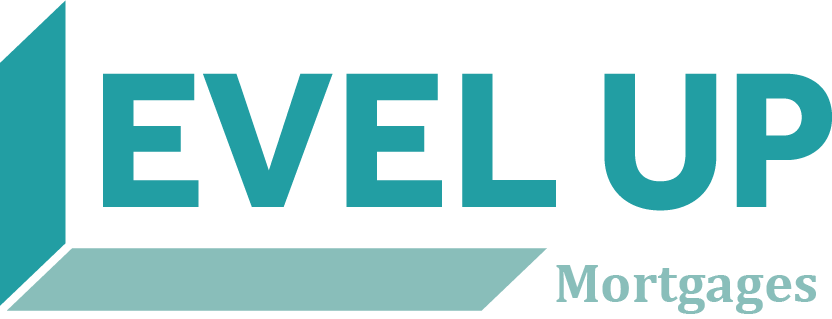The Do's and Don'ts of Mexican Property Investment
The Do's and Don'ts of Mexican Property Investment
A Guide to Mexican Real Estate Investment with Insights from Brian Menges.
The allure of Mexican real estate has grown significantly, attracting both Canadian and American investors. With its diverse landscapes, affordable properties, and increasing demand, Mexico presents a promising opportunity for those looking to invest. However, navigating this market requires a deep understanding of the legal, financial, and logistical intricacies involved. In a recent discussion, industry expert Brian Menges shared invaluable insights on how to approach investing in Mexico with confidence.
The Unique Dynamics of Mexican Real Estate
Investing in Mexico isn't the same as investing in Canada or the United States. Brian Menges, a seasoned private lender, highlights some of the key differences: "In Mexico, it's expensive to close on the purchase of a property because there are a lot of local fees." Unlike in North America, where closing costs are relatively predictable, Mexico's property taxes, notary fees, and land transfer taxes can vary significantly from one region to another.
For instance, the land transfer tax in Oaxaca can reach up to 5.5%, a figure that can catch first-time buyers off guard. Understanding these nuances is crucial for avoiding unexpected costs.
The Role of Notaries and Legal Structures
One of the most important aspects of purchasing property in Mexico is understanding the role of notaries and the legal structures in place. As Menges explains, "When you hire a notary in Mexico, they are responsible for certifying all your documents and registering them, ensuring that the ownership of your property is correctly recorded."
Foreigners looking to invest in Mexico, particularly in the restricted zones near coastlines and borders, must navigate the bank trust system, known as Fideicomiso. This system allows non-residents to own property through a trust held by a Mexican bank. Alternatively, investors can establish a Mexican corporation, though this comes with additional reporting requirements and complexities.
Financing and Currency Considerations
One of the challenges of investing in Mexican real estate is dealing with currency exchange and financing. Menges points out that their lending model, which operates in Canadian dollars, can offer financial advantages: "We lend in Canadian currency, and by the time you convert US dollars to Canadian to service the loan, you can make a bit of money on the spread, effectively lowering the interest rate."
This strategic approach to currency can reduce the overall cost of borrowing, making it more attractive for investors. Additionally, Menges emphasizes the importance of working with a lender who understands the intricacies of the Mexican market and can provide favorable exchange rates to avoid unnecessary costs.
Market Trends and Investment Strategies
When it comes to choosing the right property, understanding market saturation and potential rental income is essential. According to Menges, "In markets like Cabo San Lucas and Puerto Vallarta, we're seeing saturation in the two-bedroom, two-bathroom condo market." Investors looking to capitalize on rental income might need to think outside the box.
One successful strategy involves investing in larger properties that can accommodate bigger groups. "What I've seen with investors down there is the ones that are most successful are the ones that actually buy bigger and smaller," says Menges. Properties that can host weddings or large family gatherings tend to generate higher rental income, making them a more lucrative investment.
Legal Precautions and Final Thoughts
Before committing to a purchase, it's crucial to have a clear understanding of the legal landscape. Menges advises, "In Mexico, real estate agents and lawyers do not have trust accounts, so your money isn't always protected." To avoid potential pitfalls, investors should work with reputable law firms and ensure that all purchase agreements are thoroughly reviewed.
In summary, while Mexican real estate offers exciting opportunities, it's essential to approach it with a well-informed strategy. From understanding local taxes and legal structures to navigating currency exchanges and market trends, a successful investment in Mexico requires careful planning and expert guidance.
As the conversation wrapped up, Menges offered this final piece of advice:
“ Don’t be rushed. Do a lot of shopping and make sure you’re going to be in a place that you want to be.”
BOTTOM LINE
By equipping yourself with comprehensive knowledge of the Mexican real estate market and leveraging the insights and expertise offered by industry expert Brian Menges, investors can successfully navigate the complexities of purchasing property in Mexico and ultimately secure their ideal investment. Understanding the nuances of local taxes, legal structures, and financing options will pave the way for a prosperous future in the Mexican real estate market.
Level Up Mortgages is a mortgage broker team focused on helping the self employed, new immigrants, non-residents, and investors, access best rate and alternative lending in Canada. We have been nominated for best up and coming broker in Canada in 2021 and have been on CTV News and various publications because of our education-first approach to helping you always stay a step ahead of the process. Reach out to us for access to our first-time buyer course or a mortgage strategy session.
See What You Qualify For Or Contact Paul To Get Your Pre-Approval.
Paul Davidescu (www.levelupmortgages.com)
Level Up Mortgages
604-809-3188
paul(at)levelupmortgages.com
See Our Google Reviews in BC & Ontario: bit.ly/GoogleReviewLUM ⭐️⭐️⭐️⭐️⭐️


